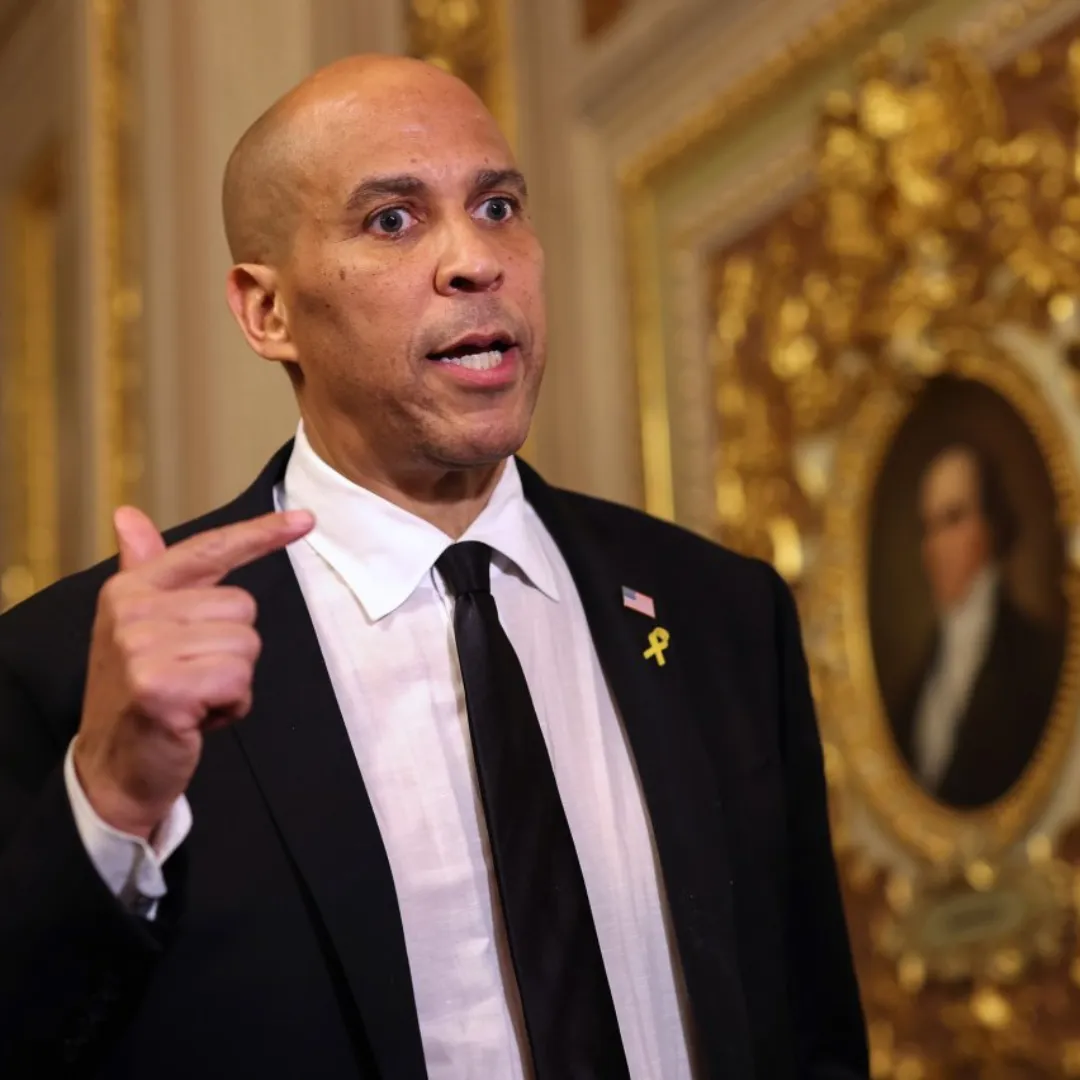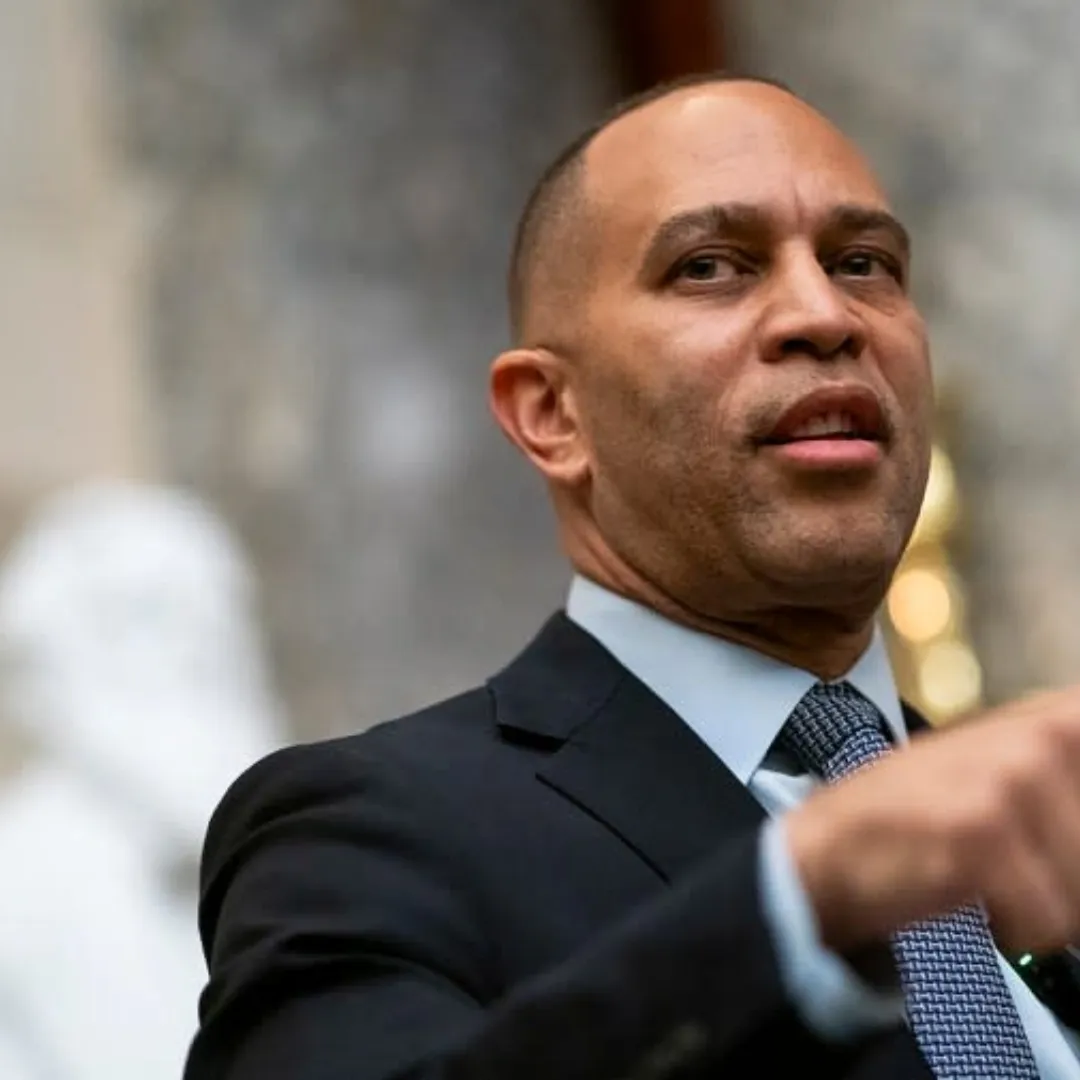
Senator James Lankford (R-Okla.) recently expressed his opinion on the growing controversy surrounding the Trump administration’s use of a Signal chat to discuss military strategies, particularly involving the upcoming attack on Houthi rebels in Yemen.
The revelation that top officials from the Trump administration were communicating via the encrypted messaging app, and that The Atlantic’s editor-in-chief Jeffrey Goldberg was inadvertently added to the group chat, has raised serious concerns about security and accountability.
However, while Lankford agreed that an investigation into the matter was appropriate, he stopped short of calling for Defense Secretary Pete Hegseth to resign, dismissing such calls as “overkill.”
Appearing on CNN’s State of the Union, Lankford was asked to weigh in on the growing political and public uproar over the use of Signal for official government business.
He stated that it would be “entirely appropriate” for the Inspector General to conduct an investigation to determine how such a breach of security occurred, but he stopped short of suggesting that the investigation should extend to the resignation of Hegseth.
“The inspector general should absolutely take a look at this,” Lankford said. He then outlined two primary questions that should be addressed in the investigation: “One is, obviously, how did a reporter get into this thread in the conversation, and the second part of the conversation is, when individuals in the administration are not sitting at their desk in a classified setting on a classified computer, how do they communicate to each other?”
Lankford’s comments reflect a broader concern within government circles about the use of unsecured communication platforms for sensitive national security matters.

As technology evolves and more government business is conducted digitally, the use of encrypted apps like Signal has become increasingly common. However, as Lankford pointed out, it is crucial to determine whether such tools are appropriate for classified communications.
The controversy came to light after it was revealed that Jeffrey Goldberg, editor-in-chief of The Atlantic, had inadvertently been added to a Signal group chat involving top Trump administration officials.
The conversation centered around the planning and logistics of a military strike against the Houthi rebels in Yemen. The inclusion of Goldberg, a well-known journalist, in what was assumed to be a private communication thread raised immediate security concerns.
Initially, Defense Secretary Pete Hegseth denied that any sensitive war plans had been discussed over Signal.
However, The Atlantic later released a second round of screenshots from the group chat that showed Hegseth detailing specific information about the time, location, and weapons to be used in the upcoming strike.
This revelation deepened the controversy and intensified calls for investigations into the administration’s handling of classified information.
Hegseth’s involvement in the chat and the subsequent leak of sensitive military information drew sharp criticism, particularly from Democrats. Many called for Hegseth to resign, arguing that his actions demonstrated a lack of judgment and compromised national security.
The push for his resignation was further fueled by the public outrage over the unauthorized inclusion of a reporter in a government communication thread.

Despite the widespread criticism, Lankford was quick to defend Hegseth’s leadership and downplay the significance of the Signal chat incident. According to Lankford, the officials involved in the chat believed it was a secure, closed communication channel.
He argued that the real issue was the inadvertent inclusion of Goldberg, not the discussions about military operations.
“This is normal communication on it,” Lankford said, downplaying the severity of the situation. “What’s not normal is having a reporter in the middle of it.”
Lankford’s defense of Hegseth contrasts with the calls for his resignation from Democrats and some members of the public, who view the leak of sensitive information as a serious breach of security.
Lankford was also pressed by CNN’s Dana Bash on whether he had any doubts about Hegseth’s leadership following the incident. His response was definitive. “No … I don’t see this as an issue of leadership,” Lankford asserted.
“I’ve heard some people calling for his resignation, I think that’s way overkill.” Lankford’s reluctance to call for Hegseth’s resignation reflects the broader Republican sentiment, with many in the party standing by the Defense Secretary despite the controversy.
The Signal chat controversy raises broader questions about the intersection of national security, government transparency, and accountability.

On one hand, there are legitimate concerns about the use of encrypted messaging apps for official government communications, particularly when it comes to discussing sensitive military operations.
Such breaches, whether accidental or intentional, have the potential to undermine the trust that allies place in the U.S. government and compromise the safety of military personnel and civilians alike.
On the other hand, the growing use of digital communication tools in government operations reflects a shift in how national security matters are managed in the modern age.
As Lankford pointed out, there are legitimate questions about how government officials should communicate when they are not in classified settings with access to secure government systems. This tension between technological convenience and security is a central issue in the current debate.
While Lankford has suggested that the matter should be investigated, he has also made it clear that he does not see it as an issue of leadership.
His comments about the investigation being “overkill” reflect a broader Republican perspective that views the calls for Hegseth’s resignation as excessive.
However, this view is not universally shared, particularly among Democrats, who see the breach as part of a larger pattern of mismanagement and lack of accountability in the Trump administration.

The reaction from Democrats has been swift and emphatic. Many have called for a full investigation into the breach of security, with some going as far as demanding that Hegseth resign for his role in the incident.
Democrats argue that the leak of military plans is not just a procedural error, but a serious violation of national security protocols that could have far-reaching consequences.
Senator Tammy Duckworth (D-Ill.), a combat veteran, was particularly vocal in her criticism of Hegseth, calling him a “liar” after his initial denial of the leak.
Duckworth and other Democrats pointed to the potential risks posed by the mishandling of classified information and the inclusion of a journalist in a sensitive government conversation.
They argue that such actions undermine trust in the U.S. government and pose a threat to the safety of military personnel abroad.
The fallout from this incident is likely to continue, with calls for greater transparency and accountability from the Trump administration growing louder.
As the investigation into the Signal chat unfolds, it remains to be seen whether this will have a lasting impact on the administration’s credibility, particularly in the realm of national security.
As the controversy unfolds, Lankford’s role as a Republican voice in the debate has been notable. While he has called for an investigation, he has also defended Hegseth and downplayed the severity of the situation.

His comments highlight the division within the Republican Party on this issue, with some members rallying behind Hegseth and others calling for greater accountability.
Lankford’s refusal to join the growing chorus of calls for Hegseth’s resignation underscores the broader divide between Republicans and Democrats on matters of government transparency and accountability.
While Republicans have largely dismissed the incident as a minor mistake, Democrats see it as indicative of a larger problem within the Trump administration.
As the investigation into the Signal chat continues, it will be interesting to see how this issue plays out in the coming weeks.
The case has already sparked intense political debate and has highlighted the growing concerns over the intersection of national security, government accountability, and political loyalty.
The Signal chat controversy is not just a legal issue—it’s a political and ethical one that raises serious questions about transparency, accountability, and the handling of sensitive government information.

Whether or not Hegseth’s actions result in his resignation, the broader implications for government conduct and trust in leadership are undeniable. The investigation will likely serve as a litmus test for how the Trump administration handles security breaches and how much scrutiny it will face moving forward.



